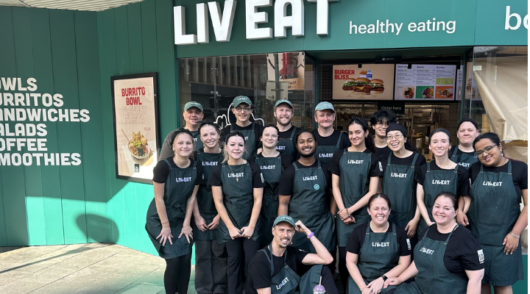Supermarket giants Woolworths and Coles failed to comply with their obligation to keep accurate employment records, a Federal Court judge has ruled, in a long-awaited verdict on a case brought against the companies by the Fair Work Ombudsman (FWO).
The FWO commenced proceedings against the two grocery giants in December 2021. It relates to the alleged underpayment of salaried managers in Coles’ supermarkets and the interpretation of the General Retail Industry Award (GRIA) and the Fair Work Act. The case was heard in 2023, and only now has a finding been released.
Woolworths and Coles paid $300 million and $7 million, respectively, to affected employees after their respective internal probes; however, the FWO initiated legal proceedings with the ultimate intention of forcing them to pay more.
On Friday, Justice Nye Perram released an 82,000-word judgment ruling that both companies had failed to keep accurate employment records. But he criticised all parties in a case he described as “unacceptably complex”.
“Whilst I would not wish to (be) definitive about how litigation of this kind might be handled in the future, I am confident that they should not be handled the way these four cases were,” Justice Perram said.
A case management hearing will be held next month to determine the next steps in the process, including compensation for the affected 27,700 employees and any fines leviable on the two grocery giants.
Wider ramifications
While on the surface it would appear only to impact Coles and Woolworths, the Australian Retailers Association (ARA), which was not a party to the case, has highlighted broader concerns.
“The outcome of today’s judgement will have significant implications for many employers navigating complex industrial awards, particularly as it relates to salaried arrangements, including but not exclusively within the retail sector,” said ARA CEO Chris Rodwell.
“This case demonstrates the challenges businesses across the retail sector face in complying with the profoundly complex GRIA,” said Rodwell. “It highlights just how compelling the case for award simplification is. Both employees and employers should be better able to understand the award to avoid compliance issues.”
With 994 different pay rates across almost 100 pages, Rodwell described the GRIA as “incredibly difficult for employers to understand”.
“It is clearly not fit-for-purpose for larger employers. The expectation that smaller mum-and-dad-operated businesses, which lack legal and HR resources, can use the award appropriately is entirely unreasonable.”
The ARA is pushing the Fair Work Commission to “clarify, simplify and modernise the GRIA”.
“If it requires teams of lawyers and HR experts to interpret the GRIA on issues such as when overtime is payable, it’s clear the system is broken, and it is setting up businesses to fail.
“It’s important to stress this isn’t simply about retailers. Employees deserve clarity, too. Workers have the right to understand their pay and conditions clearly and simply. The ARA and NRA will continue to advocate for solutions that will make the retail award easy to understand while delivering choice and flexibility to employees,” concluded Rodwell.
Supermarket giants are reviewing the decision
For their part, the two companies at the heart of the legal action are taking time out to review the judge’s findings before commenting in depth. However, Coles was quick to point out that the case arose after it voluntarily disclosed a potential breach of the GRIA in February 2020. At that time, it conducted a review into the employment terms of staff who received a salary and were covered by the award.
“Coles sincerely apologised to affected team members and conducted a remediation program,” the company said in a short statement released on Friday.
The company said it acknowledged the ruling of the court and is now reviewing the judgment to understand its implications for the group. “Given the complexity of the judgment, this may take some time.”
Woolworths issued an equally brief statement. Like Coles, it had voluntarily analysed the pay of “many thousands of Woolworths Supermarket and Metro team members over six years from 2013 to 2019”.
“Ultimately, Woolworths Group made repayments of more than $330 million to thousands of affected team members, including interest and superannuation.”
The company described Friday’s ruling as “complex and extensive”.
“Woolworths Group will carefully review the judgment. Any quantification of further remediation payments, if any, will require an extensive, detailed review and analysis across many thousands of potentially affected team members.”
Group CEO Amanda Bardwell added: “Our team members are the heart of Woolworths, dedicating themselves to serving our customers every single day. We are focused on resolving these underpayment issues. We are committed to ensuring that our team members are paid correctly.”







